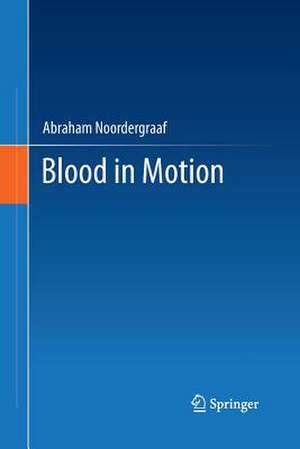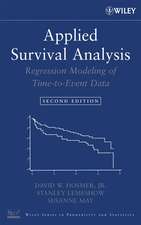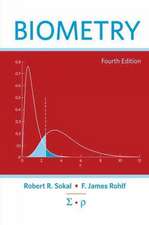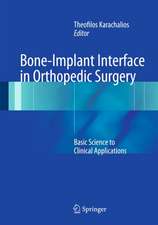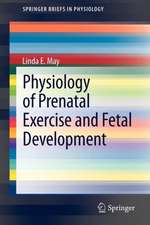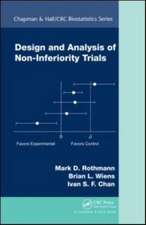Blood in Motion
Autor Abraham Noordergraafen Limba Engleză Paperback – 19 sep 2014
The book is subdivided into three parts, comprising a total of 11 chapters. Part I presents an historical perspective of cardiovascular knowledge and complements it with current insight into the physiology of the cardiovascular system. Part II explores sections of the circulatory loop, starting with an in-depth treatment of the veins, and including the lymphatic, the microcirculation, the arterial system and the heart. Part III incorporates approaches to the cardiovascular system as a whole, both in physiology and in science, such as modeling. This section introduces impedance-defined flow and offers the reader its application in mathematical modeling.
At the end of each chapter, the reader will find questions designed to reinforce the information presented. Each chapter can be read or studied as an independent unit.
| Toate formatele și edițiile | Preț | Express |
|---|---|---|
| Paperback (1) | 371.30 lei 6-8 săpt. | |
| Springer – 19 sep 2014 | 371.30 lei 6-8 săpt. | |
| Hardback (1) | 370.38 lei 6-8 săpt. | |
| Springer – 31 aug 2011 | 370.38 lei 6-8 săpt. |
Preț: 371.30 lei
Preț vechi: 390.84 lei
-5% Nou
Puncte Express: 557
Preț estimativ în valută:
71.06€ • 77.16$ • 59.69£
71.06€ • 77.16$ • 59.69£
Carte tipărită la comandă
Livrare economică 23 aprilie-07 mai
Preluare comenzi: 021 569.72.76
Specificații
ISBN-13: 9781489990792
ISBN-10: 1489990798
Pagini: 344
Ilustrații: XVII, 323 p.
Dimensiuni: 155 x 235 x 18 mm
Greutate: 0.48 kg
Ediția:2011
Editura: Springer
Colecția Springer
Locul publicării:New York, NY, United States
ISBN-10: 1489990798
Pagini: 344
Ilustrații: XVII, 323 p.
Dimensiuni: 155 x 235 x 18 mm
Greutate: 0.48 kg
Ediția:2011
Editura: Springer
Colecția Springer
Locul publicării:New York, NY, United States
Public țintă
Upper undergraduateCuprins
Part 1: Synoptic Reviews of Thinking in Circulatory Physiology.- Synoptic Reviews Of Cardiovascular Science From Different Approaches.- The Cardiovascular System and its Modes of Operation.- PART II: Circulatory Sub-Systems.- The Venous System.- The Heart.- Transmission of Arterial Signals, Venous Nonlinearity, and Body Movement.- The Microcirculation.- The Lymphatic System.- PART III: Impedence Defined Flow and the Closed Loop.- The Closed System.- Maintenance of the Circulation and Impedance-Defined Flow.- Circulatory Control.- Models of Cardiovascular Subsystems Yielding the Closed Circulatory Loop.-
Recenzii
From the reviews:
“This panoramic text is peppered with references showing the key insights and advances in the field. The text provides a framework that will stimulate the formulation of new research questions for the advanced reader. … the book is designed for ‘students and experienced physiologists and clinicians,’ … . this book will provide a platform to support important advancements in the understanding and treatment of the cardiovascular system.” (Kirk W. Beach, Ultrasound in Medicine & Biology, Vol. 38 (9), 2012)
“This panoramic text is peppered with references showing the key insights and advances in the field. The text provides a framework that will stimulate the formulation of new research questions for the advanced reader. … the book is designed for ‘students and experienced physiologists and clinicians,’ … . this book will provide a platform to support important advancements in the understanding and treatment of the cardiovascular system.” (Kirk W. Beach, Ultrasound in Medicine & Biology, Vol. 38 (9), 2012)
Notă biografică
Abraham Noordergraaf is Professor Emeritus, Department of Bioengineering, School of Engineering and Applied Science, at the University of Pennsylvania.
Textul de pe ultima copertă
Blood in Motion is a textbook in Cardiovascular Science. It sets out to introduce, entice and explain the cardiovascular system to the reader using a classical system in teaching: anatomy, physiology, general operation and specific systems. It is specifically designed to support the interests of students and experienced physiologists and clinicians.
The book is subdivided into three parts which comprise a total of 11 chapters. Part I presents an historical perspective of cardiovascular knowledge and complements it with current insight into the physiology of the cardiovascular system. Part II explores sections of the circulatory loop, starting with an in-depth treatment of the veins, and including the lymphatic, the microcirculation, the arterial system and the heart. Part III incorporates approaches to the cardiovascular system as a whole, both in physiology and in science, such as modeling. This section introduces impedance-defined flow and offers the reader its application in mathematical modeling.
At the end of each chapter, the reader will find questions designed to reinforce the information presented. Each chapter can be read or studied as an independent unit.
The book is subdivided into three parts which comprise a total of 11 chapters. Part I presents an historical perspective of cardiovascular knowledge and complements it with current insight into the physiology of the cardiovascular system. Part II explores sections of the circulatory loop, starting with an in-depth treatment of the veins, and including the lymphatic, the microcirculation, the arterial system and the heart. Part III incorporates approaches to the cardiovascular system as a whole, both in physiology and in science, such as modeling. This section introduces impedance-defined flow and offers the reader its application in mathematical modeling.
At the end of each chapter, the reader will find questions designed to reinforce the information presented. Each chapter can be read or studied as an independent unit.
Caracteristici
Explains the cardiovascular system to the reader using a classical system in teaching: anatomy, physiology, general operation and specific systems Major points in thinking or in the discussion of a point are supported by illustration to help the reader in visualizing Questions at the end of each chapter lean toward intellectual integration more so than factual reproduction Includes supplementary material: sn.pub/extras
